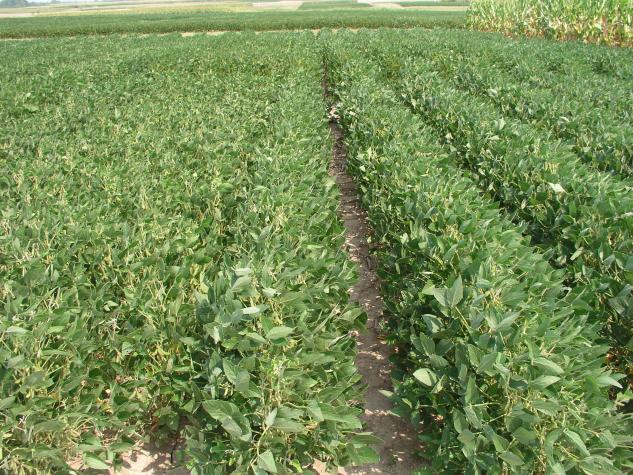
State Line Crop Conference offers speakers from MU, K-State
The annual State Line Crop Conference offers updates from University of Missouri Extension and Kansas State Extension researchers. The free event is 9 a.m. to 3 p.m. Thursday, Feb. 19, at First Baptist Church Family Life Outreach Center, 1301 E. Sixth St., Lamar, said MU Extension field agronomist Micah Doubledee.

Register for the Missouri Crop Management Conference
Registration is open for the state’s premier agricultural conference for farmers and ag industry professionals, the Missouri Crop Management Conference, Dec. 9-10 in Columbia.
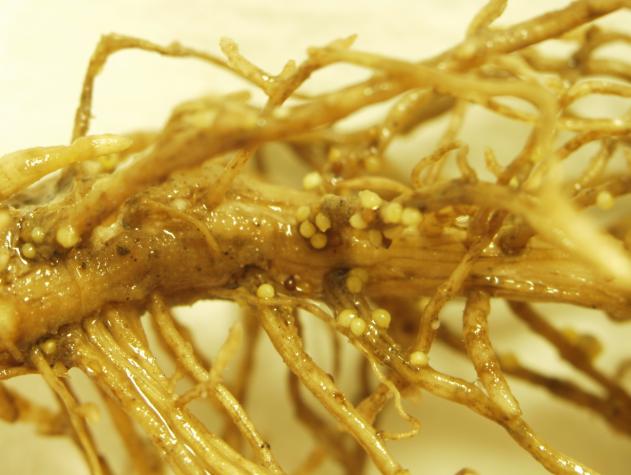
Free SCN tests available to Missouri farmers
University of Missouri Extension, SCN Diagnostics and Missouri Soybean Merchandising Council are again offering free testing for soybean cyst nematode (SCN), the No. 1 pathogen of soybean in the United States.
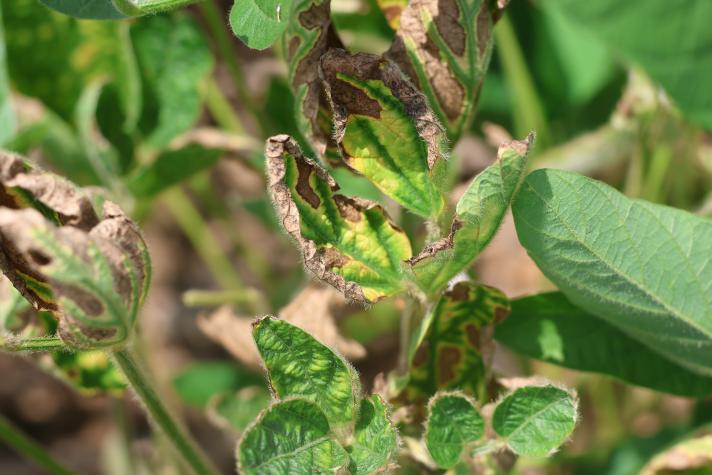
Red crown rot appears in two more Missouri counties
Red crown rot confirmed in Maries and Phelps counties; scout fields for irregular patches, especially in wet areas.
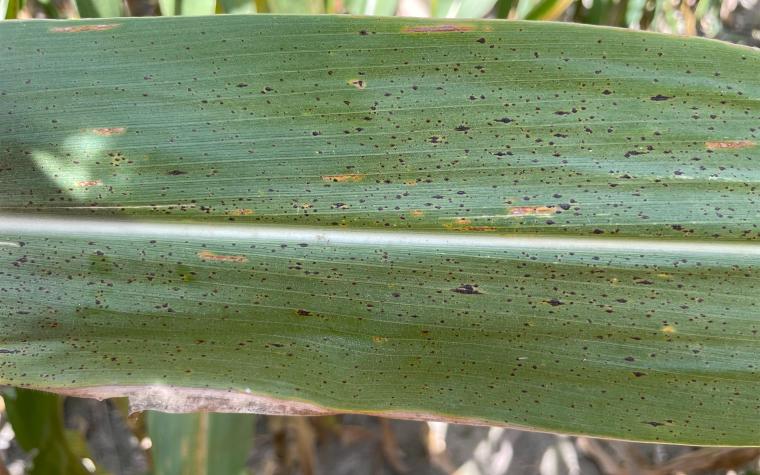
Scout deep into fields for tar spot
Good scouting is the best way to identify tar spot in corn, says University of Missouri Extension state plant pathologist Mandy Bish. Tar spot was confirmed in June of 2023 and 2024 in Missouri, which is earlier than in previous years, when the disease showed up in August or September. This earlier appearance is likely to continue because Missouri’s spring air temperatures are favorable for the disease, says Bish.

Do fungicides pay off in soybean?
COLUMBIA, Mo. – Fungicides can be an essential part of an integrated pest management plan, but they do not always provide a positive return on investment for soybean producers, according to University of Missouri strip trial research.

Red crown rot: No cure for this soybean disease
Red crown rot in soybeans has no cure. Manage spread with crop rotation, drainage, and equipment sanitation.
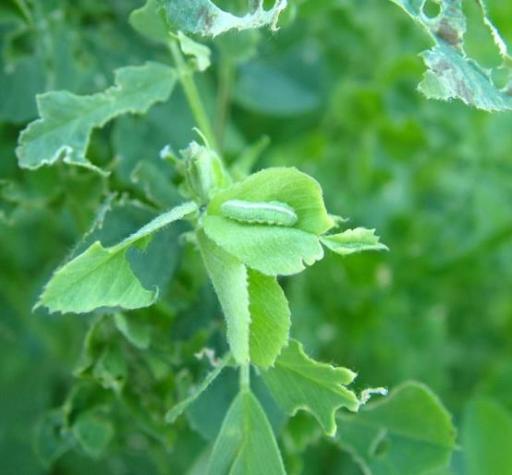
Early appearance of alfalfa weevils prompts need to scout
Early alfalfa weevil activity signals growers to scout fields and take action if infestations exceed economic thresholds.
Soybean Cyst Nematode: Out of Sight, Out of Mind?
Soybean cyst nematode (SCN) can substantially reduce yield, but it is not always obvious when the nematodes (Figure 1) are present. Leonardo Da Vinci's quote: "We know more about the movement of celestial bodies than about the soil underfoot" seems somewhat appropriate when discussing SCN levels in the soil.
Top 3 emerging disease issues going into 2022
#1 Tar spot of corn Who: Tar spot of corn, Phyllachora maydis
Control of Fusarium Head Blight (or Scab) in Wheat
Wheat in southeast Missouri is near or at flowering, which suggest that wheat in many other regions of the state is roughly 1 to 2 weeks away. Fusarium Head Blight (FHB) (Figure 1) is a disease that can cause yield loss, reduced test weights, and reduced seed quality in wheat. The fungus that causes FHB, Fusarium graminearum, infects wheat from flowering to early grain fill stages and can also result in production of the mycotoxin…
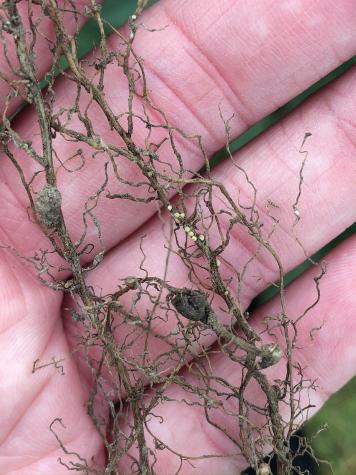
Free SCN tests available to farmers
COLUMBIA, Mo. – Missouri farmers can submit two free tests to beat the soybean cyst nematode (SCN) by contacting their county University of Missouri Extension center or the SCN Diagnostics laboratory.
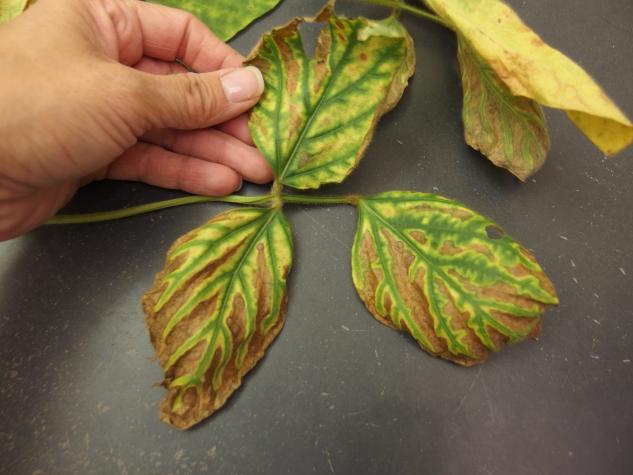
SDS appearing in Missouri soybean fields
Sudden death syndrome is appearing in Missouri soybean fields. Monitor, scout, and use resistant varieties to reduce yield losses.
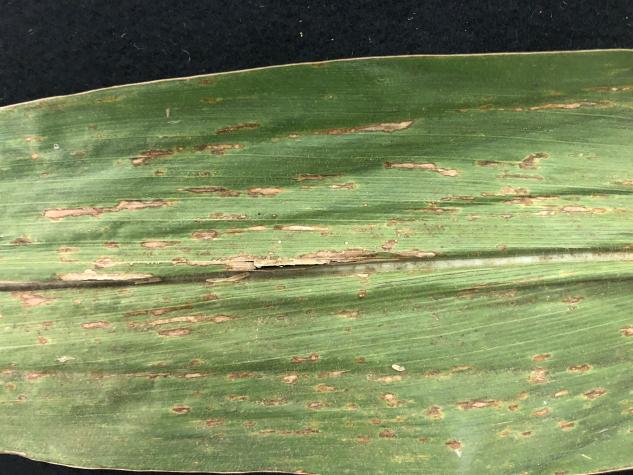
Scout for two emerging corn diseases in Midwest
Missouri corn growers should scout for bacterial leaf streak and tar spot, two emerging diseases causing significant yield losses in neighboring states.
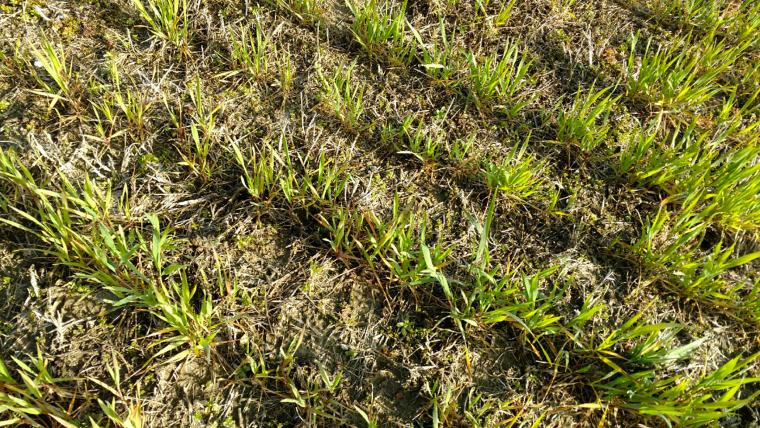
Cold start to April delays crops
Unseasonably cold April weather in Missouri has delayed corn planting, stressed wheat fields, and strained pasture and hay supplies for farmers.
New MU plant pathologist talks seed treatments and SCN
COLUMBIA, Mo. – New University of Missouri Extension plant pathologist Kaitlyn Bissonnette brings research on soybean cyst nematode (SCN) management to Missouri.SCN numbers are growing in Missouri as farmers devote more acres to soybean production. SCN infests about 75 percent of Missouri fields, according to a recent survey by MU College of Agriculture, Food and Natural Resources researcher Melissa Mitchum. Many of these fields have…
